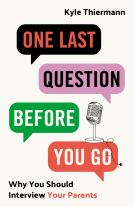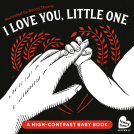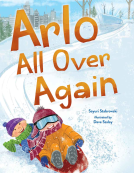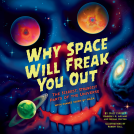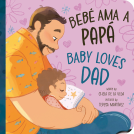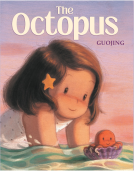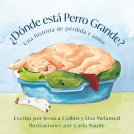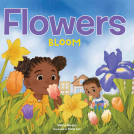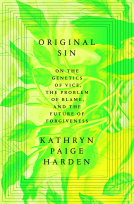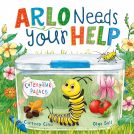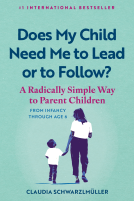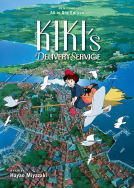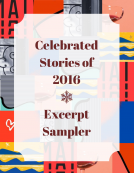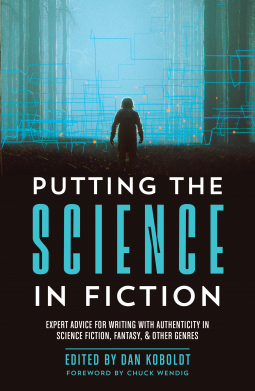
Putting the Science in Fiction
Expert Advice for Writing with Authenticity in Science Fiction, Fantasy, & Other Genres
by Dan Koboldt
This title was previously available on NetGalley and is now archived.
Send NetGalley books directly to your Kindle or Kindle app
1
To read on a Kindle or Kindle app, please add kindle@netgalley.com as an approved email address to receive files in your Amazon account. Click here for step-by-step instructions.
2
Also find your Kindle email address within your Amazon account, and enter it here.
Pub Date Oct 16 2018 | Archive Date Oct 18 2018
F+W Media | Writer's Digest Books
Talking about this book? Use #PuttingTheScienceInFiction #NetGalley. More hashtag tips!
Description
This book brings together scientists, physicians, engineers, and other experts to help you:Understand the basic principles of science, technology, and medicine that are frequently featured in fiction.Avoid common pitfalls and misconceptions to ensure technical accuracy.Write realistic and compelling scientific elements that will captivate readers.Brainstorm and develop new science- and technology-based story ideas.Whether writing about mutant monsters, rogue viruses, giant spaceships, or even murders and espionage, Putting the Science in Fiction will have something to help every writer craft better fiction.
Putting the Science in Fiction collects articles from "Science in Sci-fi, Fact in Fantasy," Dan Koboldt's popular blog series for authors and fans of speculative fiction (dankoboldt.com/science-in-scifi). Each article discusses an element of sci-fi or fantasy with an expert in that field. Scientists, engineers, medical professionals, and others share their insights in order to debunk the myths, correct the misconceptions, and offer advice on getting the details right.
A Note From the Publisher
Advance Praise
"Koboldt has gathered experts in medicine, genetics, neurology, zoology, technology, and astronomy to
correct the inaccurate depictions of science that often occur in fiction. One expert explains why inhalable
toxins are more effective than the commonly portrayed ingested poisons. Another describes why a space
pilot must rely on the computer to fly, not visual cues. The contributors provide examples of speculative
fiction executed well (such as the molecular biology in Jurassic Park) as well as moments that made them
scream (Sigourney Weaver’s pipetting in Avatar). The entries are brief, knowledgeable, and highly
entertaining, like hearing an exasperated friend rant about his or her area of expertise. However, most are
simply introductions to complex topics. If an author wants to accurately describe dementia or
nanotechnology, for example, he or she will want to get an overview from this collection and then continue
his or her research elsewhere. Science fiction doesn’t have to be completely accurate—it is fiction, after
all—but these real-life scientists argue that it should, at least, remain plausible."--Booklist
Marketing Plan
Trade Advertising
National Author Media and Bookstore Events
Industry Big Mouth Mailing
Podcast Promotion and Advertising
Targeted E-Newsletter Blasts
Library Marketing Campaign
Educator Marketing Campaign
Blogger Outreach
Early Reader Review Campaign Including Giveaways
Select Author Appearances
Cross-Promote on Author's Social Media Platforms
Print & Online Promotion in Writer's Digest and on WritersDigest.com
For Publicity Inquiries: Lisa Sweet - bookthisinc [at] gmail.com
Available Editions
| EDITION | Other Format |
| ISBN | 9781440353383 |
| PRICE | £14.99 (GBP) |
| PAGES | 272 |
Links
Average rating from 19 members
Featured Reviews
 Librarian 250745
Librarian 250745
This was a great book. I have a degree in biology and genetics, and an interest in science in general so it always irritates me when Sci-fi writers really make big errors. The persistence of the whirling field of meteorites is a case in point – thanks George Lucas for perpetuating that one! Obviously we can’t all be experts on all fields of science (another bugbear is the use of a character who is a scientist and apparently that means ALL fields of science in films and books) and you certainly don’t have to be a scientist to write Sci-fi if you do you research. This book looks at various fields and gives you the basics behind them so you can avoid your own meteor fields. Highly recommend.
 Media/Journalist 207345
Media/Journalist 207345
As an aspiring author myself, I’m always interested in titles that might help me develop my craft. I predominantly write crime fiction, but my reading tastes are a little more eclectic – encompassing horror, some science fiction, dystopia and the burgeoning new genre that is Cli-Fi - so I can well envisage writing something along those lines someday. Readers have always sought a certain realism, even in horror and fantasy they expect some consistency in the world the author creates, and this is especially so since the dawn of the internet age, when facts are so easily checkable. Obviously, the online world is the writer’s friend, enabling as it does swifter and more efficient research, but it can also be a foe, swamping them with facts of dubious veracity and luring with distraction.
Putting the Science in Fiction aims to act as an easily accessible resource for writers of any genre whose plots might touch on scientific matters. It is important to note here that “science” is broadly interpreted so as to include all the disciplines from physics through medicine and biological science to engineering. The text addresses cutting edge scientific debates and phenomena, topical debates, as well as the science that routinely reoccurs in fiction. So, we have everything from the human genome and genetic manipulation, through zombies, to the science behind Star Wars weapons.
While this book is listed as by Dan Koboldt, in actual fact he is the editor. Each chapter is in actual fact written by an expert in their field. So, we have a chapter on the human genome by Koboldt (who is a geneticist), one on portaying mental health accurately by Kathleen S. Allen, a psychiatric nurse, and another on cyborgs and cybernetics by Benjamin Kinney, a neuroscientist. Other topics I might list are writing convincing death scenes by Bianca Nogrady, a science reporter, and realistic space flight, by Sylvia Spruck Wrigley, a pilot and aviation engineer.
As noted, some of the chapters deal with more speculative topics, the chapter on zombies for example tried to answer scientifically how a zombie could theoretically come to pass, while the chapter on Star Wars weapons and space flight is clearly aimed at helping science fiction writers base their fiction in theoretical hard science. Other chapters, such that on the science behind Jurassic Park, aim to answer the question as to the realism of scenarios portrayed in film and firmly embedded in the public’s psyche.
This is a really good book with essays penned by an eclectic range of authors on a broad range of subjects. Each has suggestions at the end for resources the reader might want to look at if they want to research the topic in more depth, but on their own they stand as informative summaries, the authors successfully straddling the divide between sufficient detail and brevity. I found this book very helpful and think that as a resource I will be referring to it for a long time to come.
 Willy M, Reviewer
Willy M, Reviewer
A brilliant indispensable encyclopedic work that should be at the elbow of every fiction writer that deals in any way with science. Putting the Science into Fiction quite literally leaves no aspect untouched. And science you see in fiction is referenced here. Is it true or not? This work will inspire writers to include real science and make writing any references to science easy.
 Bill C, Reviewer
Bill C, Reviewer
Putting the Science in Fiction: Expert Advice for Writing with Authenticity in Science Fiction, Fantasy, & Other Genres is a collection of brief essays from experts in various fields that originally appeared as part of editor Dan Koboldt’s blog, which he describes in this way: “Each week, we discuss elements of sci-fi or fantasy with an expert in a relevant topic area. We debunk the myths, correct the misconceptions, and offer advice on getting the details right.”
Anyone who has started yelling at a book or the TV due to some glaring scientific error (we know who we are) will recognize the problem Koboldt’s blog, and now this book, is trying to solve and more power to him. The book runs through a gamut of topics (nearly 40), with broad topics and a few representative but not complete specific examples listed below:
1) Research and medicine (lab technique, medical misconceptions, toxins and poisons)
2) Genome (heredity, genetic engineering, viruses and pathogens)
3) Mental health and neuroscience (memory, schizophrenia)
4) Biology (wolves, insects, polar animals)
5) Technology (cyborgs, AI, the internet)
6) Planetary information (earthquakes, climate change, habitable atmospheres)
7) Space (astronomy, relativity, space flight, FTL)
As is often the case with collections, the articles vary in effectiveness and also obviously will be dependent on one’s own areas of expertise or, if not expertise, familiarity. All of them are written with a welcome level of clarity, many are full of useful information, and some I’d call just to basic to be of much use. The best ones not only tell us what we should know but also debunk common myths, while others amongst the most effective ones enliven the information with a wry sense of humor, bringing the authors’ personal experiences (and personality) into the mix. A few of my favorites were the medical misconceptions by Karyne Norton, the chapter on poisons by Megan Cartwright Chaudhuri (which came with an excellent list of additional resources), a particular lucid chapter explaining plague by Lee A. Everett, and two particularly strong chapters on dementia by Anne M. Lipton (probably my most highlighted chapters), and an interesting chapter on gender in the animal kingdom. Some of those that were not particular full of new information to me either offered up a tidbit or two of something fresh or it was just nice to have all the familiar information in a concise, all-in-one-place format, as with one chapter that listed various types of tech jobs.
The basic information is here as jumping off points, some delve into much more detail, and many offer up other resources to dig into the topics more deeply. If it wasn’t quite as much new information as I’d have hoped, I’d still call it a useful, well-written resource. And for those with less familiarity with some of the topics, that would be only more true. Recommended.
Aspiring writers and science-fiction fans will enjoy Dan Koboldt's Putting the Science in Fiction. Koboldt has compiled dozens of short primers on a variety of topics found in science-fiction. Each chapter is written by an expert in his or her field; they're concise, well-written, and accessible introductions to each topic. Looking for basic facts on how gravity, earthquakes, or genome sequencing work? You'll find that here. Interested in more speculative fiction, like futuristic weaponry or zombie microbiology? Yep, this book has that, too. It's an interesting, fun read and should be required reading for any science-fiction writer.
I have been following Dan Koboldt's blog for some time and learning a lot. So I was excited to see this book and hopeful at the same time. I'm pleased to report that I learned even more from the book! No matter if you write with a lot of sci-fi in your work or even just a little, there's bound to be something in here you'll find yourself using. Much of it is written in a conversational style, very easy to read. (Although I confess to reading the genetics section twice in order to understand parts of it)
If you write sci-fi of any stripe, you need this book!
Readers who liked this book also liked:
Kyle Thiermann
Biographies & Memoirs, Nonfiction (Adult), Parenting, Families, Relationships
Sayuri Stabrowski
Children's Fiction, Outdoors & Nature, Parenting, Families, Relationships
Jessica Collins; Lisa Melamed
Children's Fiction, Español, Parenting, Families, Relationships
Mélina Mangal
Children's Fiction, Multicultural Interest, Parenting, Families, Relationships
Claudia Schwarzlmüller
Health, Mind & Body, Nonfiction (Adult), Parenting, Families, Relationships
Created by Hayao Miyazaki
Comics, Graphic Novels, Manga, Sci Fi & Fantasy
